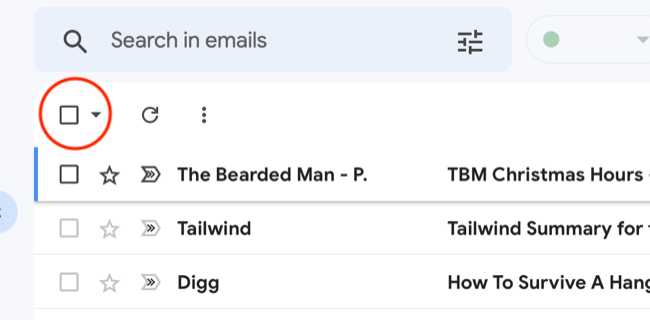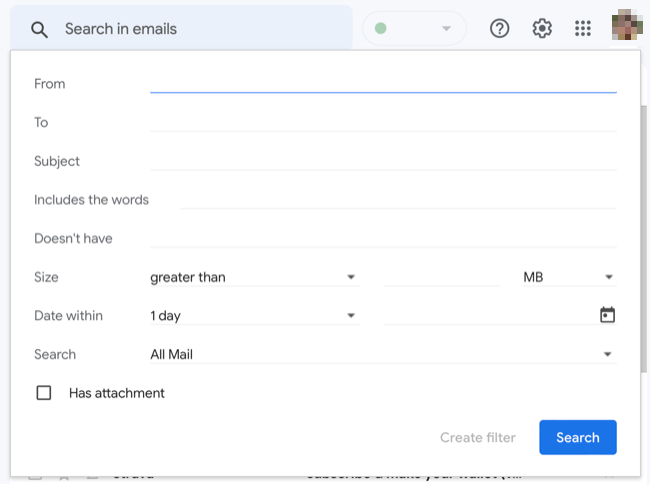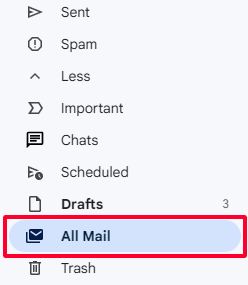Quick Links
Key Takeaways
Use the "Select All" checkbox at the top of Gmail's screen to select all emails in your inbox, then hit the delete button. If you want to specify emails based on certain criteria, use a search term or label to filter your inbox first.
Have you let your Gmail inbox become cluttered and overrun? Maybe you're looking for a quick way to mass delete newsletters or emails from a specific domain name. Here's how to tidy up your Gmail account in record time.
Delete Emails in Gmail Using "Select All"
You can delete everything in your inbox quickly using the "Select All" box at the very top of your inbox when using Gmail on a desktop browser. Click it once, and the first 100 emails (everything on the first page of your inbox) will be selected, with a notice.
If you want to select everything in your inbox, go ahead and click the link next to the notice that reads "Select all <number> conversations in inbox" (where <number> is how many conversations you have in your inbox).
From here you can use the "Delete" trash can icon to move everything to the Bin, where it will be permanently deleted in 30 days. You can expedite the process by clicking "Empty Bin now" to permanently delete everything in the bin at once.
You can also use the "Archive" button to move selected messages to your archive so that they're out of your inbox but still accessible should you need them.
Use Search, Labels, and More to Mass Delete
If you'd rather mass delete email based on certain criteria, you can use Gmail's full suite of search features to perform a query. The easiest way to do this is to use the "Advanced Search" button in the search bar at the top of your inbox.
Use the form that appears to fine-tune your criteria, then hit "Search" to run your query. You'll see the exact search terms you could have manually input appear in the search bar, along with a list of results.
From here it's a simple case of using the "Select All" button to select everything (remember to click on the "Select all conversations that match this search" button to include all results) then use the "Delete" or "Archive" button as required. You can do the same with any labels you have created.
How to Delete Archived Emails in Gmail
If you're in the habit of archiving messages in Gmail, you can also clear up inbox storage by deleting your archived emails instead of letting them sit there. In fact, there are several reasons you should delete emails instead of archiving them.
To mass delete your archived emails, first retrieve your archived emails by clicking the All Mail folder.
In the All Mail folder, you'll see every email your Gmail account contains, including archived emails. Unfortunately, there's no way to sort out non-archived messages, but the archived emails will not have the "Inbox" label, and when you select it the Archive icon (a box with a downward arrow on it) will be grayed out.
When you find archived emails, check their boxes and hit the "Delete" button (a trash can icon).
Mass-Deleting Emails on the Gmail Mobile App
If you prefer the Gmail mobile apps for Android and iPhone, you should know you can delete multiple emails, but there's no option to "Select All" messages or capture all emails that fall into certain search criteria. You can select more than one email by tapping on the circle that appears next to a message in your inbox. You'll then see a "Delete" option at the top of the screen.
To really clean up your inbox you'll need to hop on a desktop browser, log in with your Gmail password, and follow the instructions above.
Go One Further and Delete Your Whole Account
Are you done with Gmail? You can choose to delete just Gmail or your entire Google Account. If you limit this to just Gmail you can still use other Google services like YouTube, Maps, and Drive.
Alternatively, delete the whole lot and de-Google your life. Now pick one of the three other top free email services to replace it, or up your security game with a secure email provider.









